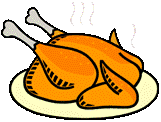Food Science and Technology Department
Date of this Version
2014
Citation
Innate Immunity 0(0) 1–15 DOI: 10.1177/1753425914525812
Abstract
Foodborne salmonellosis costs the US $2.7 billion/year, including $100.0 million in annual losses to pork producers. Pigs colonized with Salmonella are usually asymptomatic with varied severity and duration of fecal shedding. Thus, understanding the responses that result in less shedding may provide a mechanism for control. Fifty-four pigs were inoculated with Salmonella enterica serovar Typhimurium (ST) and clinical signs, fecal ST shedding, growth performance, peripheral cytokines and whole blood gene expression were measured. Persistently shedding (PS) pigs had longer pyrexia and elevated serum IL-1β, TNF-α and IFN-ϒcompared with low shedding (LS) pigs, while LS pigs had brief pyrexia, less shedding that decreased more rapidly and greater serum CXCL8 than PS pigs. The PS pigs up-regulated genes involved with the STAT1, IFNB1 and IFN-ϒ networks on d 2, while up-regulation of genes involved in immune response regulation were only detected in LS pigs. This is the first study to examine host responses to ST infection at a clinical, performance, cytokine and transcriptomic level. The results indicated that pigs with different shedding outcomes developed distinct immune responses within the first 2 d of ST infection, and elucidated alternative mechanisms that could be targeted to reduce Salmonella shedding and spread.


Comments
This article is a U.S. government work, and is not subject to copyright in the United States.